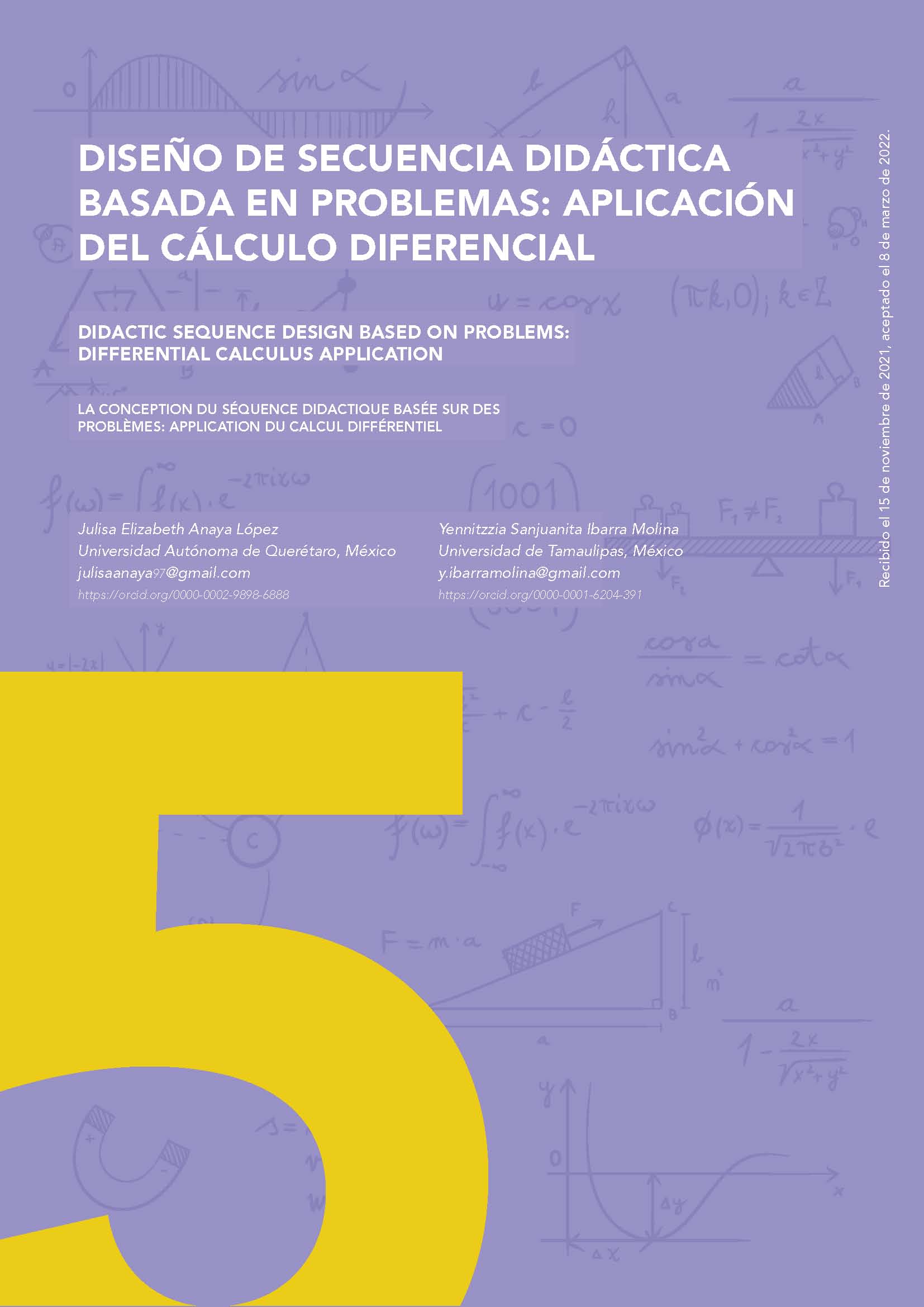Abstract
The overall objective of this research is to design a didactic sequence based on the Problems Based Learning (PBL), which includes contextualized situations to the administrative field; For which we took as reference the planning of the Mathematics Applied to Administration subject of the Business Administration and Management career of the Universidad Politécnica of Victoria, specifically analyzing unit II: Application of differential calculus, and topic II of the same: Derivatives of functions. The methodology that guides this research is qualitative with a descriptive approach. The design of the didactic sequence will follow the process of Problem Based Learning theory (PBL).
References
Barrows, H. (1986). A Taxonomy of problem based learning methods. Medical Education, (20), 481-486.
Cubillos, J. (2002). Matemáticas I. ESAP Publicaciones.
Engler, A., Müller, D., Vrancken, S. y Heckien, M. (2019). Funciones. Ediciones UNL.
García, L., Moreno, M., Badillo, E., y Azcárate, C. (2011). Historia y aplicaciones de la derivada en las ciencias económicas: Consideraciones didácticas. Economía, (31), 137-171. https://www.redalyc.org/articulo.oa?id=195621325006
Gavira, N. (1999). Cálculo Diferencial e Integral con Aplicaciones a la Economía, Demografía y Seguros. Revista electrónica de contenido matemático, 9(2), 27-59.
Granado, L. (2018). El aprendizaje basado en problemas como estrategia didáctica en educación superior. Voces de la Educación, 3(6), 155-167. https://www.revista.vocesdelaeducacion.com.mx/index.php/voces/article/view/127/149
Guerrero, L., Hernández, A., Martínez, O., y Segura, J. (2018). Cálculo diferencial y el desarrollo del pensamiento matemático. Revista en Línea Atlante Cuadernos de Educación y Desarrollo. p. 1-16
Guevara, G. (2010). Aprendizaje Basado en Problemas como técnica didáctica para la enseñanza del tema de la recursividad. Revista de las Sedes Nacionales, 11(20), 142-167. https://www.redalyc.org/articulo.oa?id=66619992009
Hernández, S., Fernández, C., y Baptista, P. (2014). Metodología de la Investigación. McGraw. Hill.
Lambros, A. (2008). Problem based learning in middle and high school classrooms. A teacher’s guide to implementation. Corwin Pass.
Moreno, M. y Sierra, A. (2011). Uso del Aprendizaje Basado en Problemas en Administración. (Tesis de Maestría). Chía.
Rendón, H. (2009). Cálculo para administración y Turismo. Ediciones de la Noche.
Restrepo, B. (2005). Aprendizaje Basado en Problemas (ABP): Una innovación didáctica para la enseñanza universitaria. Educación y Educadores, (8), 9-19. https://www.redalyc.org/articulo.oa?id=83400803
Rodríguez, E., Montes, J. y Escobar, R. (2013). Diseño de actividades mediante la metodología ABP para la Enseñanza de la Matemática. Scientia et Technica, 18(3), 543. https://www.redalyc.org/pdf/849/84929154015.pdf
Puig, Osmany, Diéguez, Raquel, y Torrecilla, Raudel (2015). Regularidades de la formación matemática en carreras universitarias de Ciencias Económicas. Multiciencias, 15(4), 410-416. https://www.redalyc.org/articulo.oa?id=90448465007

This work is licensed under a Creative Commons Attribution-NonCommercial-ShareAlike 4.0 International License.
Copyright (c) 2022 PädiUAQ


